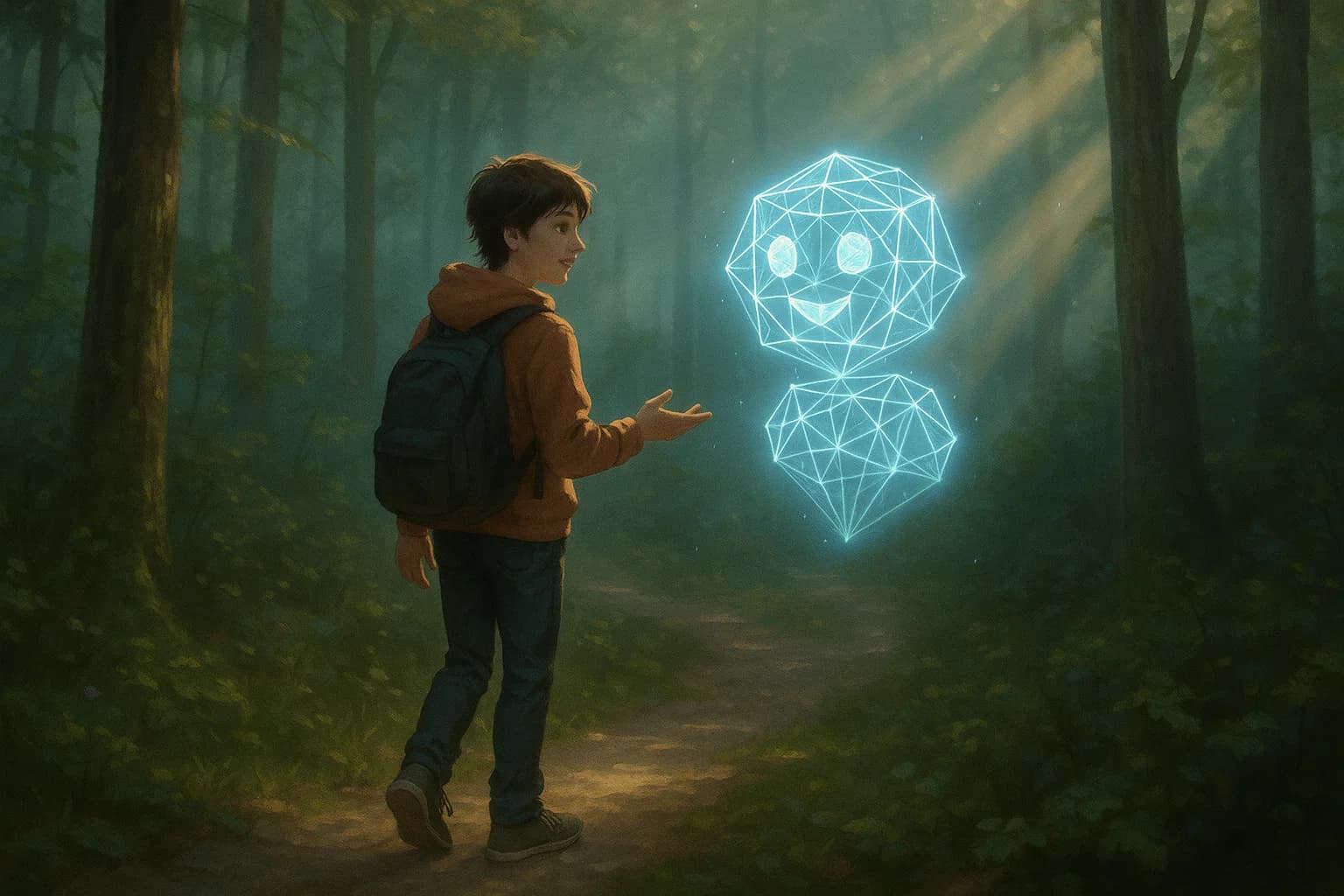
How a Mental Health Chatbot Is Revolutionising the Mental Wellness App Space
It’s 2:11 am. You’re spiralling. Your therapist is asleep. Who can you call? That lonely, anxious, thought-loop moment is exactly where mental health chatbots are stepping in to change the game. These aren’t basic tools with standard replies. The next wave of friendly emotional helpers is shaking up what a mental wellness app can be. They’re not here to fix you. They’re here to be with you. And in India, where discussions about mental health are only now finding their voice, this shift feels deeply relevant. Let’s look at how this quiet change is changing emotional support, no jargon, no judgment, no therapist’s brochure tone.
WTMF Team
It’s 2:11 am. You’re spiralling. Your therapist is asleep. Who can you call? That lonely, anxious, thought-loop moment is exactly where mental health chatbots are stepping in to change the game. These aren’t basic tools with standard replies. The next wave of friendly emotional helpers is shaking up what a mental wellness app can be. They’re not here to fix you. They’re here to be with you.
And in India, where discussions about mental health are only now finding their voice, this shift feels deeply relevant. Let’s look at how this quiet change is changing emotional support, no jargon, no judgment, no therapist’s brochure tone.
From Mood Trackers to Real-Time Listeners: The Quiet Revolution
For years, mental wellness apps have mainly provided tracking, journaling, and CBT-based activities. They’ve been useful but limited.
A mental health chatbot offers something different:
Presence.
Not advice, not productivity tips. Just someone (well, some-bot) to listen when your thoughts won’t shut up.
But here’s what’s actually new:
- Real conversations: These bots copy human talk, pauses, tone, care, and even humour.
- Cultural context: Top bots don’t just use Western scripts. They get “uff yaar” and “mood off hai” always.
- Memory matters: They keep track of what you’ve said, gently checking back like a friend cares.
India’s Emotional Tech Boom Is Rooted in Real Gaps
Let’s be honest: therapy in India is still out of reach for most. Between cost, shame, and a lack of trained experts, people turn to Google or keep quiet.
That’s where mental health chatbots do more than act as new gadgets. They fill emotional needs, especially when:
- It’s too late to call someone.
- You don’t feel “sick enough” for a therapist.
- You just need to vent without judgment.
And they do this in a way that feels familiar, chatting in English, Hindi, or Hinglish without making you feel like a case study.
Not Just AI: Relatable AI
The big change? These bots drop cold, stiff tones for warm, flexible personalities.
Take WTMF, for example. It lets you pick sassy, calm, gentle, or even playful tones. That’s not a gimmick, it’s human. Because how you want to be spoken to during an anxious moment isn’t the same as in a reflective mood.
A relatable mental health chatbot can:
- Match your energy.
- Hold silence when you need space.
- Gently check in if you spiral too deep.
This isn’t about faking friendship. It’s about building real trust.
Built for the 3 am Crowd And Everyone Else
This isn’t just about the tough nights. A mental health chatbot fits into just regular care, too:
- Post-work brain dump: Vent about your boss without filtering.
- Pre-sleep spiral: Talk through worries so they don’t follow you to bed.
- Routine check-ins: “How was your day?” can bring real insight when asked with care.
The best part is it’s there. No appointments. No judgment. Presence, on your schedule.
Is It a Therapist? No. But That’s the Point.
Let’s be clear: this isn’t therapy. It’s not officially qualified, not trained to treat deep issues, and not meant to replace human connection.
But only for people who don’t need a diagnosis, just a space to feel seen, chatbots are doing something that many mental health apps in India haven’t figured out yet:
They make people feel less alone. And that is revolutionary.
Why India, Why Now?
India is uniquely positioned for this kind of tech:
- High Mobile Usage: Over a billion mobile connections give people easy access to app-based emotional support.
- Online-Savvy Gen Z: Young Indians are used to forming connections via screens, making them more open to chatbot companionship.
- Judgment-Free Zone: Chatbots offer a safe space, vital in a culture where mental health is often whispered about instead of talked about.
- Language Flexibility: Tools that pick up Hinglish or local expressions feel more natural than English-only apps.
- Round-the-Clock Help: With few therapists and irregular work hours, 24/7 emotional access is essential.
In a country where talking about mental health can feel like a weakness, chatting with a bot removes shame. It’s private. Honest. Safe.
As these tools learn local language, tone, and context, they’re becoming something even more powerful: emotionally aware companions.
Privacy Isn’t a Feature. It’s Non-Negotiable.
You’re sharing deep thoughts, your fears, regrets, and unspoken feelings. So let’s talk trust.
The best bots today build privacy from the ground up:
- End-to-end encryption – Your chats stay private and secure.
- No emotional data mining – Your feelings aren’t collected or analysed.
- No ad targeting – Conversations aren’t sold to advertisers.
- No third-party sharing – Data isn’t passed on to outsiders.
- User-controlled memory – You decide what’s saved or deleted.
You deserve safety, not surveillance. Thankfully, the mental wellness app space is starting to get that.
Why Choose WTMF for Emotional Support That Actually Feels Human?
Most apps feel like apps. WTMF feels like someone who really understands you. Whether you’re spiralling at midnight or just need to be heard, WTMF shows up with emotional intelligence, cultural awareness, and no performance pressure.
Here’s what makes it stand out:
- Always Available: WTMF is there 24/7, no appointments, no waitlists, just instant presence.
- Personalised Conversations: It remembers your past chats and follows up kindly, giving real continuity.
- Culturally Fluent: WTMF understands Hinglish, desi emotions, and Indian mental health taboos.
- Choose Your Tone: Pick calm, chaotic, soft, or sassy personalities.
- No Judgment, Ever: You can vent, overthink, or stay silent. WTMF won’t correct or coach you, just be with you.
Your Emotions Deserve Attention: Not Just “Management”
Here’s the thing, mental wellness shouldn’t be limited to apps that push you into routines. You’re not a to-do list. The rise of the mental health chatbot, especially tools like WTMF, shows that care can be warm, responsive, and genuine, even from a screen. In India, where silence often surrounds struggle, this shift is more than a tech advance. It’s emotional freedom, available at the tap of a thumb.
Ready to Feel Heard, Not Handled? Join the waitlist for WTMF and experience what real emotional support can feel like, private, present, and made for you. No scripts. No judgment. Just someone who gets it.
More Insights
Continue exploring our latest thoughts on AI psychology and emotional intelligence


